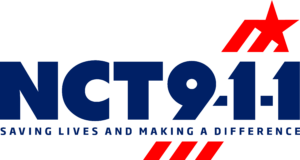February is National Heart Month. This month is dedicated to raising awareness about heart health. the prevention of heart-related conditions, and education about what to do in situations in which a heart-related health concern arises. As we focus on caring for our hearts, it’s important to recognize the critical role emergency response systems like 9-1-1 have in saving lives, especially during cardiac emergencies.
Heart disease is a leading cause of death globally, claiming millions of lives each year. During cardiac emergencies, every second counts. Contacting 9-1-1 immediately upon recognizing the signs of a heart attack or cardiac arrest can significantly improve the chances of survival.
Heart Attack: Symptoms of a heart attack can vary but may include chest pain or discomfort, upper body pain, shortness of breath, nausea, lightheadedness, or cold sweats. If you or someone else is experiencing these symptoms, call 9-1-1 immediately.
Cardiac Arrest: Cardiac arrest is often sudden and can lead to loss of consciousness and the ceasing of breathing. If you witness someone experiencing these symptoms, call 9-1-1 and begin CPR immediately.
Educating communities about the signs of heart attacks and cardiac arrest, as well as the importance of calling 9-1-1, is crucial. By raising awareness and providing education, we can empower individuals to take action and potentially save lives when they witness a heart-related medical emergency.
How You Can Help:
- Learn CPR: Taking a CPR course can equip you with the skills to provide immediate assistance in a cardiac emergency. To view local CPR classes, visit the Red Cross website to learn more.
- Spread Awareness: Share information about heart health, the signs of heart attacks and cardiac arrest, and the importance of calling 9-1-1.
- Support Heart Health Initiatives: Participate in events or fundraisers that promote heart health and raise funds for research and education.
As we observe National Heart Month, let’s not only focus on our own heart health but also on being prepared to help others. By recognizing the signs of cardiac emergencies, calling 9-1-1 promptly, and providing immediate assistance, we can make a difference in saving lives. Together, let’s work towards a heart-safe community where everyone knows how to respond in a cardiac emergency.
This blog post was written with the assistance of an AI language model.

